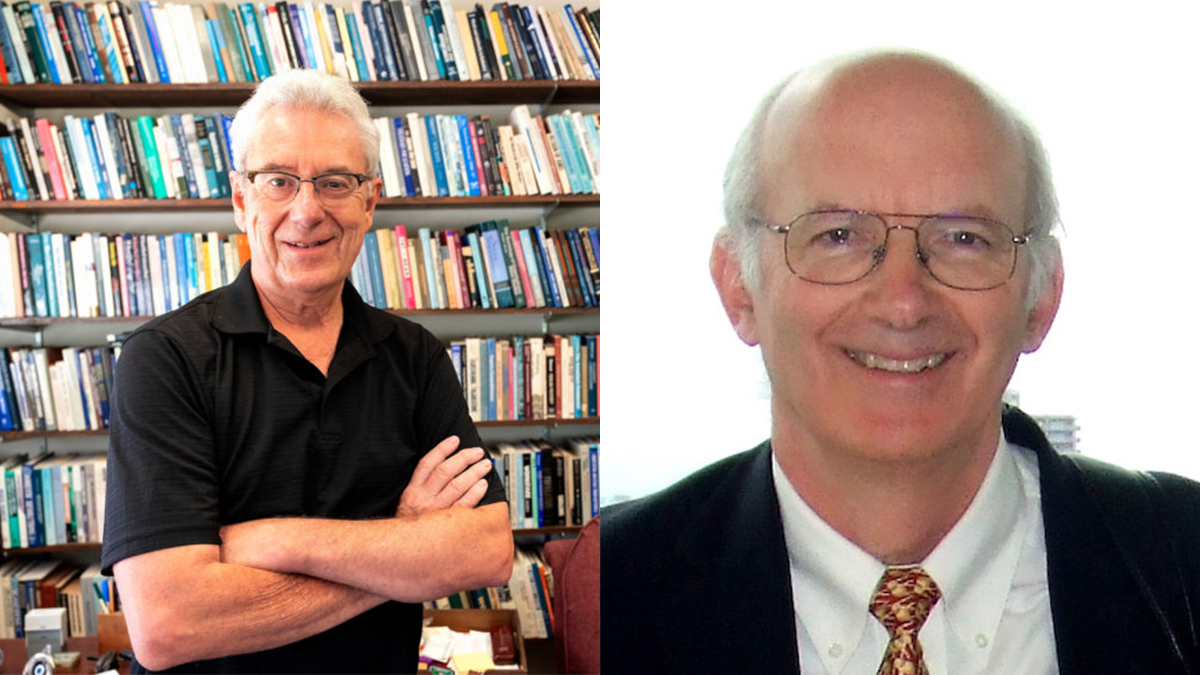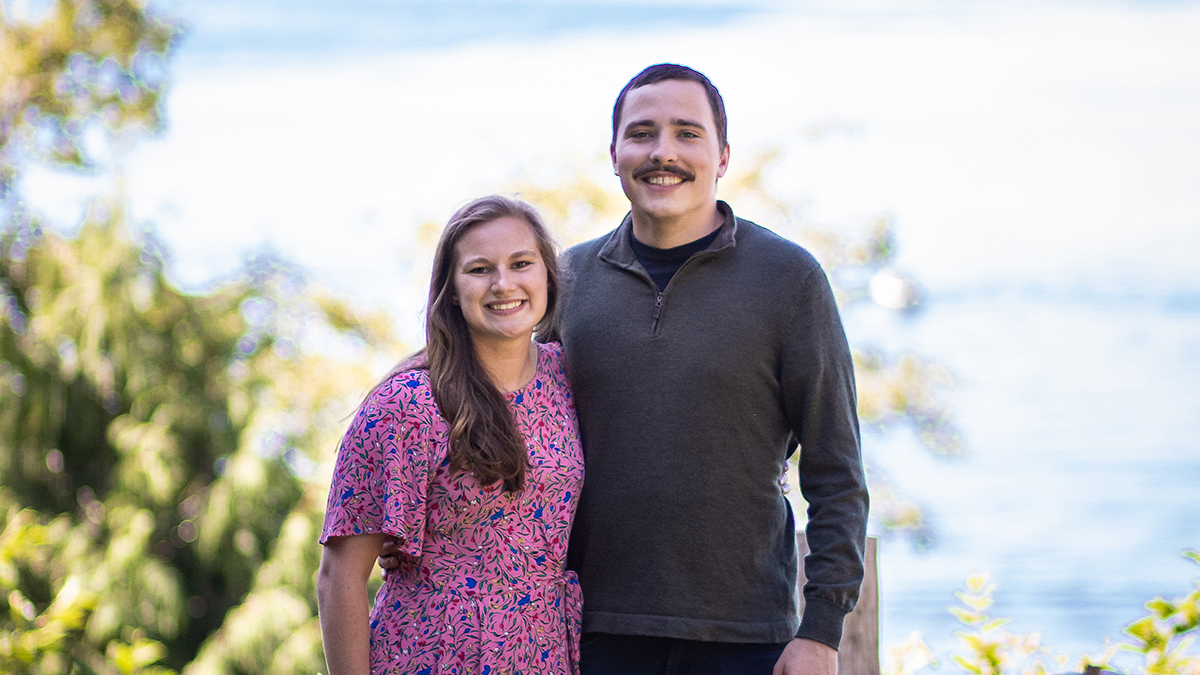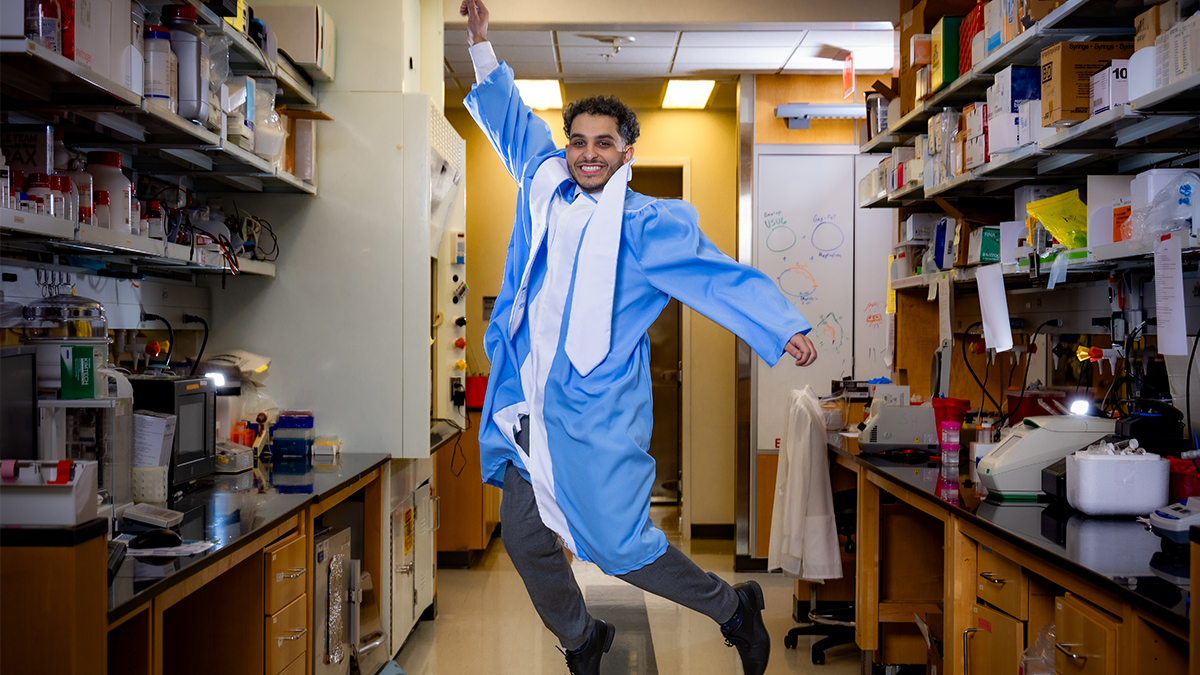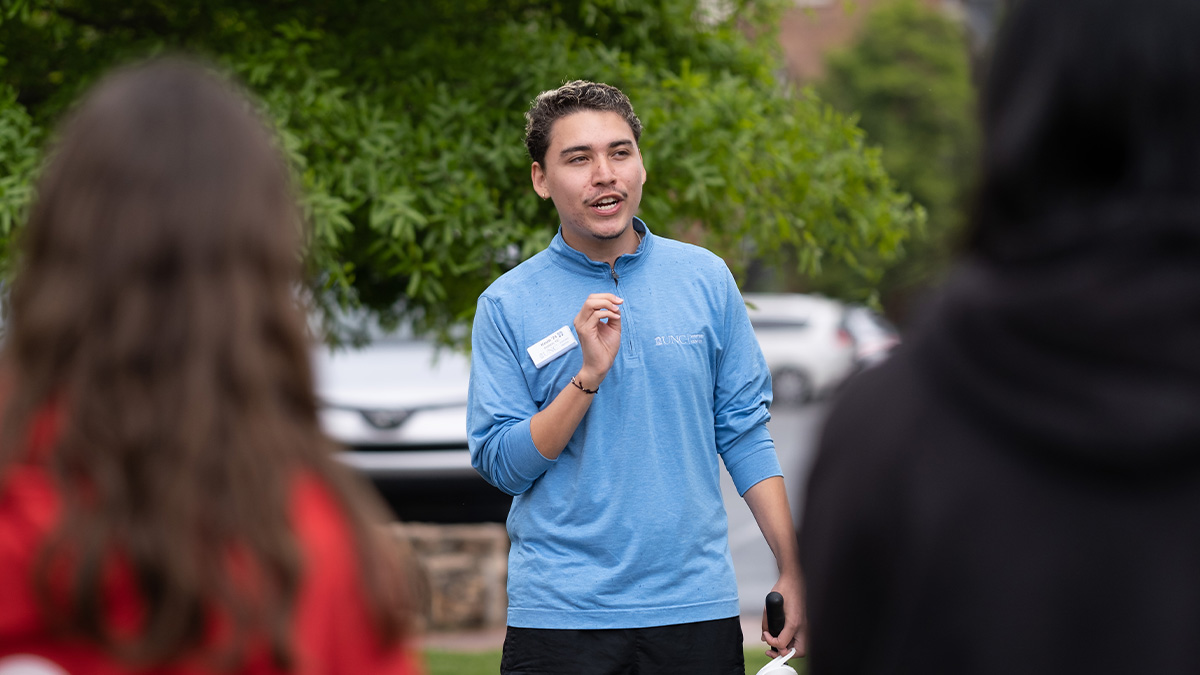‘Education matters’
Chancellor Carol L. Folt officially welcomed Fouad Abd-El-Khalick as the next dean of the School of Education at the Carolina Inn.
Fouad Abd-El-Khalick’s wife, Lama, and even their 3-year-old daughter, Farrah, were excited about the prospect of moving to Chapel Hill.
They looked forward to experiencing the town’s rolling hills and warmer weather that are more similar to their native Lebanon than the cold flatlands of Illinois.
But Abd-El-Khalick had to sweeten the deal to get their 8-year-old son, Kareem, onboard with the move.
“I said, ‘Kareem, when we move to North Carolina, I promise I will take you to as many basketball games as possible, because, you see, those Tar Heels down there … they actually win!’”
As Abd-El-Khalick is all too painfully aware. In 2005, five years after he joined the School of Education faculty at University of Illinois at Urbana-Champaign, Carolina beat Illinois for the NCAA national championship.
Abd-El-Khalick spoke during a Tuesday reception at the Carolina Inn where Chancellor Carol L. Folt officially welcomed him as the next dean of the School of Education.
As she did, she recited some winning statistics about the school he was hired to lead.
“This is a wonderful school of education,” Folt said, consistently ranking in the top 10 percent of schools of education in graduate school rankings by U.S. News & World Report. In 2016, the magazine ranked several of the school’s graduate programs among the top 20 of their disciplines, including educational administration and supervision, curriculum and instruction, and special education.
“We are hopeful that under the leadership of Dr. Abd-El-Khalick we will be able to accelerate efforts already underway to engage more global opportunities for School of Education students and faculty,” Folt said.
Executive Vice Chancellor and Provost James W. Dean Jr. said Abd-El-Khalick has published extensively in science education. His research focuses on the teaching and learning about the nature of science from K-12.
Abd-El-Khalick grew up in Lebanon, earning a bachelor of science degree in biology, a diploma in teaching secondary science and a master of arts in science education from the American University of Beirut. He came to the United States for graduate school, earning a doctorate in science education from Oregon State University in 1998, Dean said.
After earning his doctorate, Abd-El-Khalick spent two years on the faculty at the American University of Beirut in the Department of Education. He joins Carolina from his current post as associate dean for research and research education in the College of Education at Illinois.
He succeeds Bill McDiarmid, who served as dean from 2009 to the end of 2015. Deborah Eaker-Rich, senior associate dean and chief academic officer for the School of Education, has served as interim dean since January.
Abd-El-Khalick’s research helps to find better and more accessible methods to educate children, while creating better understanding among teachers for how they process and translate information into knowledge, Dean said.
At Illinois, Abd-El-Khalick worked to receive funding for EnLiST, a program paid for by the National Science Foundation that promotes science and engineering in K-12 education, Dean said.
“This program is music to our ears here because it created an increased interest in STEM, particularly among African-American students,” Dean said.
Abd-El-Khalick, who will begin as dean on July 1, said he was excited about joining a school of education that is among the finest institutions of higher education in the nation and around the globe.
“Education matters. Lifelong, lifewide. And a school of education matters and this school has delivered for a very, very long time,” Abd-El-Khalick said. But with that distinction, he added, comes “remarkable responsibilities to a multitude of stakeholders.”
“Like our peer schools and colleges of education across the nation, we are facing a number of very difficult challenges,” Abd-El-Khalick said. “For instance, there have been precipitous and consistent decreases in the number of young people who are aspiring to become teachers and work in our P-12 schools, especially schools in the most underprivileged and under-resourced of our communities. We need to win those young people back into the ranks of the teaching profession.”
Another core challenge, he said, will be working toward equity in terms of access and outcomes for all students across all educational levels, with a particular focus on meeting the needs of the most vulnerable children, young adults and communities.
“As vexing as these problems are, we need to remain focused and optimistic,” Abd-El-Khalick said. “I know I am. … Come July 1st, you will most likely find me at your door step seeking help, guidance, or collaboration, and dragging you into some fun and a challenging endeavor.”




